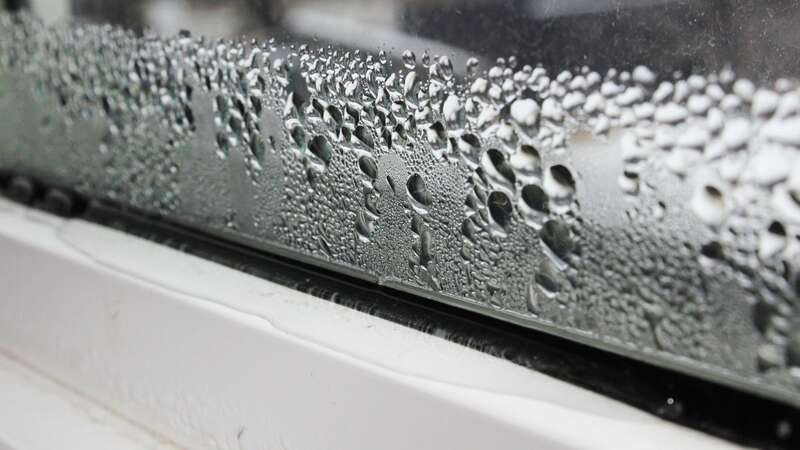
A glass expert has revealed the ways you can prevent condensation on your bedroom windows.
Condensation on bedroom windows is something many Brits encounter during the winter months. Condensation is an issue as it can cause mould growth not just around your window but on walls, ceilings and other objects in your home.
Mould can potentially have a significant impact on your respiratory health and this impact can be worse if the mould is located in your bedroom. John Cutts, a glass expert from MeandMyGlass.co.uk has shared five ways you can reduce the amount of condensation build-up on your bedroom windows.
Firstly, John explained that it was "common" to find your windows have steamed up overnight often resulting in a damp windowsill in the morning. The expert recommended that you should always take the time to wipe the condensation off the windows in the morning alongside implementing prevention techniques.
Houseplants
John explained that houseplants including spider plants and orchids are known to help reduce moisture in the air, which can prevent condensation in your bedroom. Peace Lilies are not only pretty flowers, but they also love humidity so they a perfect for absorbing mould spores in your bedroom. You can read the best plants to have to abolish condensation in your bedroom in our article here. For the best results, John recommends that you place the plants on the windowsills or as close to the windows as you can get.
 Key signs of 'traumatic damp' you should never ignore, according to expert
Key signs of 'traumatic damp' you should never ignore, according to expert
Use a dehumidifier
As is suggested in the name, a dehumidifier removes moisture from the air. By using one of these, condensation will be a lot less likely to occur because there is less water to condense on your surfaces.
The expert explained: "Mould develops when there is excess moisture in the air which is why investing in a dehumidifier can help eliminate the problem. Having them placed on a windowsill can effectively absorb the moisture and prevent the spread from escalating."
However, dehumidifiers, as useful as they are, do cost money to run and need emptying every so often, making them require constant maintenance to remain active.
Keep windows open
This might seem obvious, but it's effective. Opening your windows will release the humid air outside, and therefore, will prevent the humidity from collecting onto your windows. While it may be hard to keep windows open all night, ventilation throughout the day can reduce indoor humidity levels. John says keeping windows open also helps prevent mould growth so he recommends Brits do this as much as possible throughout the winter months.
Turn the heating on in the morning
Putting the heating on for around 20 minutes in the morning can help to control the humidity in the room. John explained: "Open the windows first to get a healthy airflow going, then put the heating on to stop the windows from steaming up. If the condensation has resulted in serious mould growth on walls and ceilings, you may need to call in professionals as it could be due to external issues in the building making it worse."
Keep blinds and curtains away from the glass
If blinds and curtains are touching the glass, it can block the airflow, contributing to condensation throughout the night. John says a simple way to avoid this build-up is by making sure your curtains or blinds are kept a good distance away from your windows and doors to prevent the water from building up. It's also a good idea to open your curtains and blinds as soon as you awake too.
Have you got a story to share? We want to hear all about it. Email us at yourmirror@mirror.co.uk.
Read more similar news:
Comments:
comments powered by Disqus































